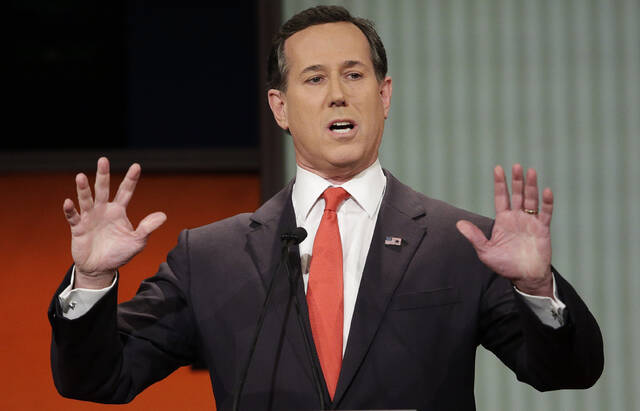On Newsmax last week, I commented on the passage of the Ohio initiatives that created constitutional rights to recreational marijuana and abortion. I stated that “pure democracies are not the way to run a country.”
Columnist Lori Falce posited that I am “not a fan of letting people make decisions for themselves.” She goes on to suggest that I would oppose the legislature putting referenda to the voters in Pennsylvania and concludes with the “irony” of my support for a convention of states that would limit the power of the federal government and return power to the states and the people.
Unlike the wrath unleashed against my comments elsewhere on social media and progressive media, Falce did accurately explain my comment, “To be fair, while Americans can trumpet the idea of democracy, it is true that the country is actually a democratic republic. That’s a representative democracy where the people don’t make all the decisions; they pick the people who do.”
And that was exactly my point. No country, with the possible exception of Switzerland is run by a pure democracy where the voters directly decide the laws, much less the constitution upon which they are governed. This majoritarian rule was explicitly rejected by our founders in order to protect individual and minority rights. They would have been particularly alarmed by a system that allowed voters to directly amend the basic law of the state, the constitution, by such a process.
Our entire constitutional structure was designed to prevent the extremes of autocracy or majoritarianism (mob rule) that threaten fundamental rights. Not surprisingly, it was the progressives at the turn of the last century that pushed the initiative process that resulted in many states allowing for initiatives to pass laws and constitutional amendments bypassing the legislatures. One only has to look at the mess of the California constitution to see the results of this process. Fortunately, Pennsylvania has yet to succumb to this threat to minority rights.
Ms. Falce suggested that I oppose Pennsylvania’s referendum process. I do not. As she pointed out with the example of the referendums overturning Governor Wolf’s emergency declaration, referendums can empower the legislature to go to the people to assist it in preventing authoritarian rule by an executive. Referenda, which don’t require a governor’s consent, have the important feature of involving the duly elected officers of the people who are an important buffer to protect minority rights.
My support for convention of states is indeed an attempt to weaken the increasingly tyrannical federal government that routinely, under both parties, exercises power unauthorized by the constitution. The state legislatures under Article V of the constitution have the power to amend the constitution, but the process is incredibly difficult, requiring a super majority consensus and years of effort.
The convention I support would limit the power, spending, taxation and terms of federal officers. The first step requires 34 state legislatures to pass a resolution to call the convention (to date 19 have done so). A convention is then held to propose amendments only if approved by a majority of states. Any proposed amendments would be submitted to the state legislatures and must be ratified by 38 states in order for them to be added to the constitution.
That was my point on election night. Amending the basic constitution of a country or state should be a long and deliberative process with multiple checks to protect the public from big money special interests, misinformation and the passions of the moment. Article V requires a broad consensus of the public and the involvement of the elected representatives who are accountable to the people. The U.S. constitution has been amended 17 times in the last 230 years compared to Ohio 170 times and California 517 times!
This progressive era chaos is funded by wealthy and powerful special interest groups who can buy enough signatures to get on the ballot and then spend unlimited amounts of money lying to the public about complicated language that deliberately confuses the voter to get what they want. It is indeed no way to run a state or a country.
Rick Santorum represented Pennsylvania in the U.S. Senate from 1995 to 2007 and the U.S. House of Representatives from 1991 to 1995, as well as a candidate for the Republican presidential nomination in 2012 and 2016.








